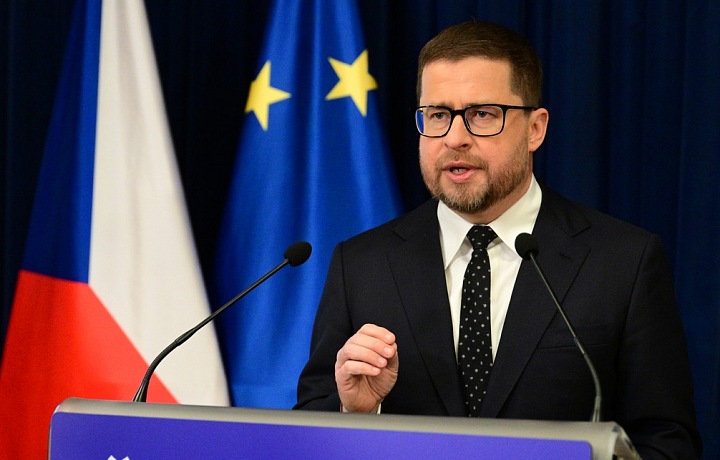The central bank left the base interest rate at 3.75 percent. The risks remain inflation and deficits in public budgets
Central bankers left the basic interest rate at 3.75 percent at their March meeting. The main reason for this is fear of inflation. Analysts, however, expect the rate to decline slightly this year.
Although the result of the Czech National Bank's meeting was ultimately unequivocal, because all seven members of the council were in favor of keeping the rate at 3.75 percent, some experts spoke differently before its conduct.
"Economic indicators could support a more significant reduction of up to 0.5 percentage points. The Czech koruna is the strongest against the euro in the last turbulent half year,"
said Milan Gašo, the financial director of the investment group Jet Investment for ČTK.
Another argument was added by Cyrrus's chief economist Vít Hradil.
"The main argument for reducing rates is the relatively strong exchange rate of the Czech koruna, which acts as a self-imposed tightening of monetary policy and thus opens up space for lower rates. The continued sluggish performance of the Czech economy, which remains below its potential and would thus appreciate a boost in the form of lower interest rates, cannot be overlooked either,"
Hradil said.
There are several reasons for keeping the rate at its current value
Despite this, most analysts expected that the bank board would again interrupt the easing of monetary policy and keep the base interest rate as it was set at the beginning of February. And this is what eventually happened.
According to experts, the reason is mainly higher January and February inflation, faster wage dynamics at the end of the last year and the decision to increase public sector spending with an emphasis on defence. As reminded at the press conference by the Governor Aleš Michl, the cause also lies in the increase in loans that are being provided for housing financing.
The risk is also foreign development, especially the risk of American tariffs on European products. Because of this, it is clear how the actions of the administration of the new American President Donald Trump can unsettle markets and negatively affect the global functioning of the economy. We certainly must not forget the impacts of the expected increase in defense spending in Germany.
"The biggest pro-inflationary risks are not trade wars, but public finance deficits. Their increase can then also be influenced by the mentioned deepening of trade wars. The Bank Board confirms its determination to continue in monetary policy so that inflation moves around the two percent target in the long term. Currently, this still requires stricter monetary policy,"
Michl pointed out.
Most experts welcome the decision
Two members of the banking board, Jakub Seidler and Jan Kubíček, hinted in their interviews with the media last week that they would maintain the current interest rate.
"Our steps will be sufficient to maintain price stability in accordance with our statutory mandate,"
The governor reassures the public, knowing that the expert community is on his side this time.
"The decision of the banking council to keep interest rates is certainly the right decision, reflecting the development and dynamics of individual sections of the consumer basket,"
said ČTK analyst of the investment group DRFG Vojtěch Měřínský.
The stability of the rates is, according to economist Peter Dufek of the bank Creditas, also good news for savers. On the other hand, mortgage rates probably won't go down any time soon.
"Not because of the central bank, but as a result of the increasing cost of medium and long-term money in financial markets due to the announced budget expansion,"
explained Dufek.
The Czech crown also seemed to like the decision to leave the rates unchanged at first, as it still stayed below the 25 CZK per euro boundary.
From seven to 3.75 percent
The central bank began loosening monetary policy in December 2023. It was a time of high inflation, when the base interest rate was seven percent. Currently, this indicator is at its lowest level since January 2022. Analysts assume that bankers will lower the interest rate even more this year, but according to them, the decline won't be significant.
The chief economist at Roklen anticipates one to two rate cuts each by a quarter of a percentage point.
"The timing of the next adjustment will be determined by incoming data,"
said Berka.
Interest rates on bank deposits and loans are derived from the central bank's rates. Higher interest rates bring more expensive loans for investment and operation to businesses, and more expensive housing loans to households. However, at the same time, higher interest rates increase the valuation of deposits in accounts.
Sources: ČTK, ČNB













